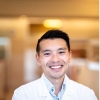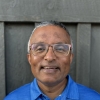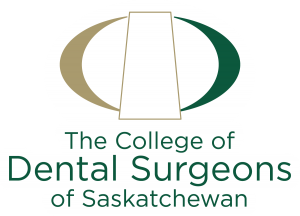Geriatric Dentistry: Implementing practical patient management tips for functionally dependent older adult patients residing in Long Term Care facilities
About this Seminar
Older adults who reside in Long Term Care (LTC) facilities present unique challenges for dental teams aiming to optimize their oral health. Multimorbidity, polypharmacy, and frailty contribute to functional decline in older adults and increase the risk of rapid oral health deterioration. Declines in cognition can affect patient co-operation for dental procedures, consent, and daily oral hygiene. Managing the dental needs of these older adults presents numerous clinical challenges in terms of treatment planning and treatment delivery.
This symposium in Geriatric Dentistry will discuss practical tips for managing common clinical scenarios in frail and functionally dependent older adults as well as geriatric treatment planning concepts. This symposium aims to cover the considerations that a dentist working in LTC would encounter, including designing an effective LTC dental service. Saskatchwan specific considerations will be discussed.
LEARNING OBJECTIVES
By the end of this session, participants will be able to:
- Describe the impact of cognitive decline, multimorbidity, and frailty on oral health
- Discuss considerations for managing the dental needs of LTC residents
- Describe practical skills that clinicians can use chair side to foster a positive experience for frail and functionally dependent older adults in the operatory
- Examine the impact of evidence-based risk factors in treatment planning in functionally independent older adults compared to their frail/functionally dependent counterparts
- Employ a shared decision-making framework with patients/caregivers in the long-term care setting
SCHEDULE
| Time | Topic | Speaker |
| 9AM-10AM | Long Term Care (LTC) Dentistry: Considerations for Treatment Planning in Frail and Functionally Dependent Older Adults | Tong |
| 10AM-10:10AM | Break | |
| 10:10AM-11:25AM | Practical Tips for LTC Patients: Restorative, Perio, Oral Surgery, Prosthodontics in Functionally Dependent Older Adults | Tong |
| 11:25AM-11:35AM | Break | |
| 11:35AM-12:30PM | LTC Dentistry Considerations for Saskatchewan | Bhargava |
Download the course poster HERE.
Presenters

BHSc, DDS, MSc, FSCD, FACD

About Dr. Nicholas Tong
BHSc, DDS, MSc, FSCD, FACD
Program Director- UBC General Practice Residency
Chair- British Columbia Dental Association Geriatric Dentistry Committee
Assistant Professor of Teaching Division of Prosthodontics and Dental Geriatrics
Faculty of Dentistry, University of British Columbia
Dr. Nicholas Tong BHSc, DDS, MSc, FSCD, FACD is an Assistant Professor of Teaching at the UBC Faculty of Dentistry in the Division of Prosthodontics and Dental Geriatrics. He is the Program Director for the UBC General Practice Residency. Dr. Tong graduated with BHSc degree from McMaster University, a DDS degree from the University of Toronto, a GPR certificate from the University of Alberta Hospital, and a MSc (Craniofacial Science) degree from UBC. He is a staff dentist with the UBC Geriatric Dentistry Program, treating frail and functionally dependent patients in Long-Term Care. Dr. Tong is Chair of the Geriatric Dentistry Committee with the British Columbia Dental Association, a Fellow with the Special Care Dentistry Association and American College of Dentists, and a Director at Large with the American Society for Geriatric Dentistry.
About Dr. Raj Bhargava
Dr. Raj Bhargava is a 1988 USask College of Dentistry graduate. His private practice includes providing oral health care to those that present with physical and cognitive challenges. He has been providing this care for about 35 years. Bhargava leads a dental team that provides comprehensive oral health care services; to the Frail/Elderly, to Long Term Care residents, as well as to those that are home/hospital/bed bound. His discussion will explain and show alternate methods and modes of oral health care delivery as well as the Saskatchewan model of delivery of care to those that are best treated in their own “homes”.
